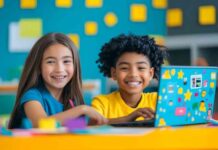Student learning is a crucial aspect of education, focusing on acquiring knowledge and skills to achieve specific goals. However, despite continuous efforts to improve the education system since the early 1980s, assessments show minimal progress in students’ academic achievements. This raises the question of whether the focus of school reforms has been leading teachers and students in the wrong direction.
One of the issues highlighted in the article is the narrow focus on content knowledge in academic study, neglecting the practical purpose it serves. For example, a science lesson on the gravitational force of Earth may be centered on a core idea without emphasizing its intended use in explaining the motion of celestial and terrestrial bodies. As a result, students may struggle to understand the concept beyond memorization, hindering their overall academic progress and motivation.
Reading comprehension is another critical area where pedagogical approaches may fall short. While the emphasis is often on developing language skills and critical thinking, the true purpose of texts as mediums of interpersonal communication is overlooked. Texts are not just conveyors of information but also intended to affect readers’ emotions and behaviors, shaping their perspectives and guiding their actions.
Instead of constantly reforming the education system, the article suggests a shift towards a more practically oriented pedagogy that helps students value and benefit from the cultural heritage presented in the curriculum. By focusing on the practical application of knowledge and skills, students can better understand the purpose behind their learning and engage more meaningfully with academic content.
In conclusion, improving student learning requires a shift in pedagogical approaches to emphasize the practical purpose of education. By helping students understand the real-world applications of their learning, educators can enhance academic progress, motivation, and overall engagement in the educational process. It is essential to move away from a narrow focus on content knowledge towards a more holistic view of education that equips students with the skills they need to succeed in various aspects of their lives.







